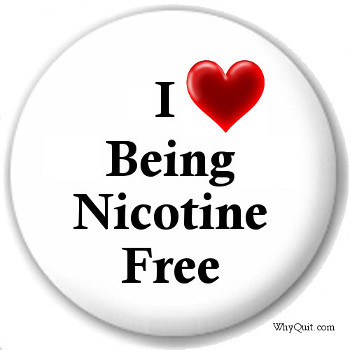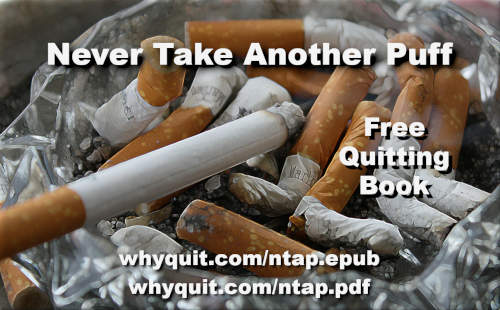
Best smoker New Year's gift: "NTAP"
Do you have a friend or loved one who is a slave to inhaled nicotine, a smoker or e-cigarette user who wants to quit but just can’t seem to pull it off? If so, imagine e-mailing or texting them the solution.
Available for free in EPUB, PDF, MOBI, Word and AZW3 formats, the 3rd edition of “Never Take Another Puff” (NTAP) is being released just in time to make New Year’s quitting resolutions come true.
Other than being totally free and ad-free while declining donations, how is NTAP different?
Amazingly, 12 years before the 1988 Surgeon General Report first declared that nicotine wasn't just habit-forming but an addiction, Joel Spitzer, NTAP's author, was being criticized by colleagues for teaching his two-week stop smoking clinic participants that nicotine was addictive.

Today, cessation authorities continue to fail to recognize a number of critical yet fundamental quit smoking principles.
While Spitzer has devoted his life to nicotine dependency recovery, most books, apps, programs and websites declare victory if smokers replace or switch to alternative forms of nicotine delivery.
A labor of love, “Never Take Another Puff” packs 49 years of Spitzer stop smoking career insights into 129 short articles. Originally released in 2003 and revised in 2006, the 2021 edition adds 30 additional articles. It also shares links to related online videos produced by Spitzer.
Want to see Joel Spitzer’s life’s work in action? Visit Turkeyville, home to 14,800 smart turkeys.
Our thanks to all who share NTAP's link. While knowledge is power, NTAP isn't sold or advertised anywhere. The only way it's discovered is through online caring and sharing.
NTAP lessons hooked friends probably don't know
Law of Addiction * One Puff * Quitting Dates * Attitude * Minimizing Symptoms * Blood Sugar * Anger * Emotional Loss * Smell & Taste * Weight Control * Sleep * Dreams * Alcohol * Caffeine * Triggers * Urges * Avoiding Triggers * Fixation * Crutches * Buddy Systems * Finding Cigarettes * Medication Adjustments * Support Groups * Quitting Methods * Relapse * Complacency




